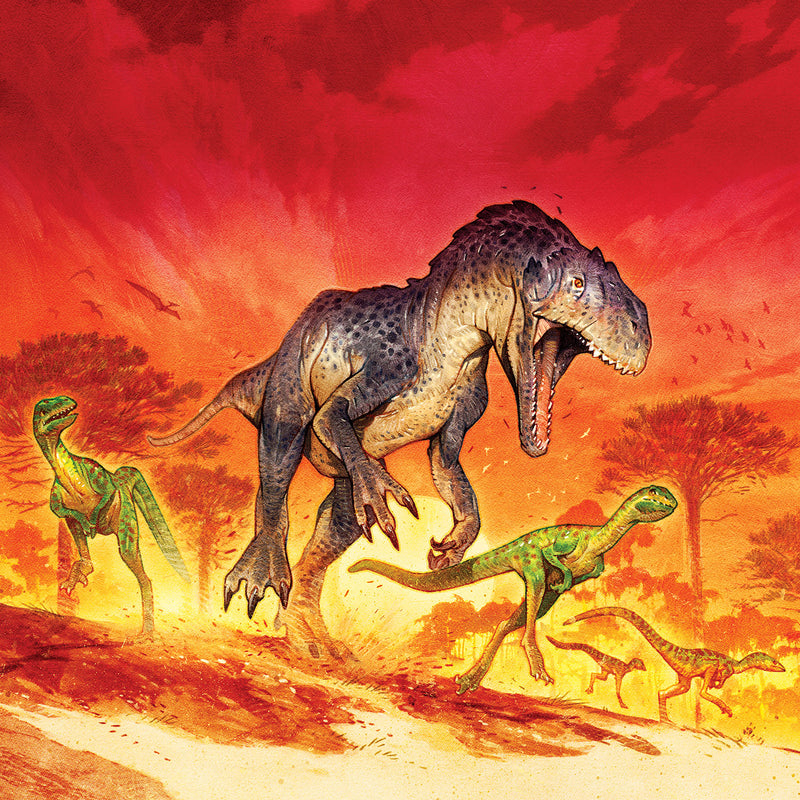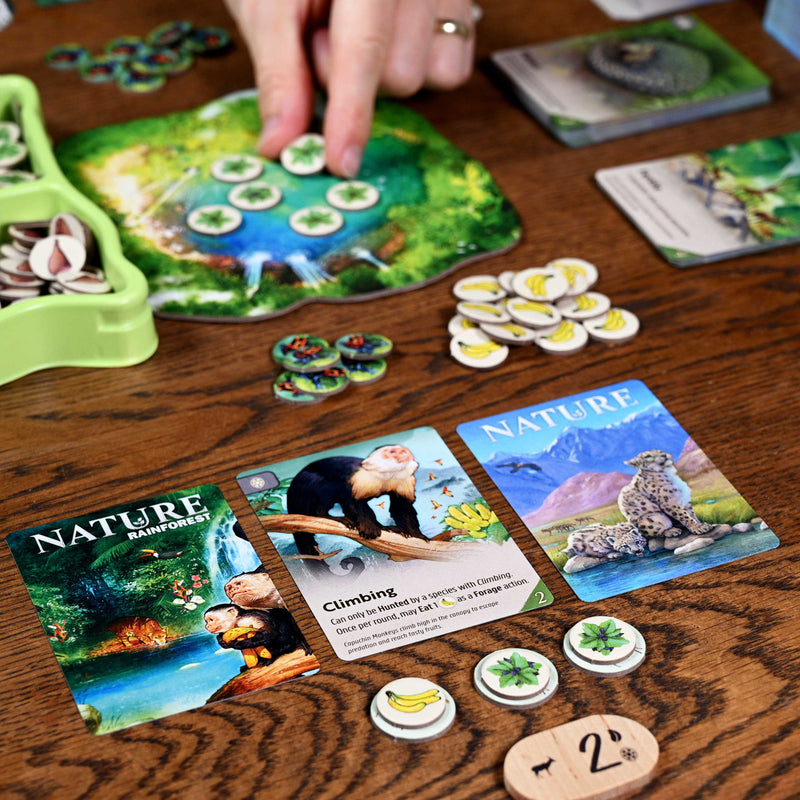
Prototype box art for Paint the Roses
This is the first post in a series about our upcoming game Paint the Roses, written by the game’s designer, Ben Goldman.
Why has Alice’s Adventure in Wonderland endured? It was published in 1865, the year the American Civil War ended. But we’re still reading it, still making movies about it, still referencing it. It’s only 25,000 words long! The first (and shortest) Harry Potter Novel is three times that. Yet this short, 150 year-old story still grabs the imagination. Why?
Yet this short, 150 year-old story still grabs the imagination. Why?
I think it has to do with the way it was written. It lacks detail. It’s so vague and dreamy, everyone who reads it imagines their own reality for it. Maybe you imagine a happy Disney wonderland, a creepy Tim Burton Wonderland, or an LSD-bender Jefferson Airplane Wonderland. We each get a custom experience.
But if I told you I designed a cooperative deduction game set in Wonderland, with the hard, not-at-all dreamy logic that implies? You might ask why I’d do that.
First, how dare you. Second, I direct your attention to the book’s author: Lewis Carroll. He’s most known for his literary works. But Lewis Carroll is a pen name. His real name was Charles Dodgson, and his day job was mathematics. He was good at it. He even authored a bunch of celebrated mathematics books, which he wrote concurrently with Alice’s story.
When Alice's Adventure found its way to Queen Victoria, she enjoyed it so much she wrote to Dodgson to request the first edition of his next book. She got it: “An Elementary Treatise on Determinants.” Probably not what she expected. Dodgson denied this happened and maybe it didn’t, but it illustrates his strange writing life. He simultaneously wrote books about logic and madness. As if they were related.
Indeed, there’s a popular theory Wonderland is an allegory for trends in Mathematics in the late 19th century. Dodgson was a conservative mathematician, suspicious of new ideas then emerging, especially in logic. For example: imaginary numbers, which are the square roots of negative numbers. Imaginary numbers don’t exist on the number line. A number that’s not a number? How strange. And in Dodgson’s view, how distasteful.
As it turns out, Dodgson’s distaste was misplaced, as nearly every concept he objected to has since been accepted. But the legacy of Wonderland stays with us, and I still love it.
And since Wonderland may be a commentary on 19th century logic, it couldn’t be a more perfect setting for a deduction game. A logic game set in an allegorical world of logic. So I made one:
The game is called Paint the Roses. It tasks you and your teammates with planting the Queen of Hearts' garden. But each player knows only a little about how to do the planting, and must deduce the remaining planting rules from the way the other gardeners work. If you plant wrong, it's off with your head.
North Star Games will Kickstart Paint the Roses sometime in 2020. In the meantime, I’m writing a series of essays, which will cover different aspects of how the game works, why I designed it that way, and what I learned about design in the process. I’ll cover things like:
- How quarterbacking (AKA the alpha player problem) works in cooperative games, and how Paint the Roses makes it impossible.
- Scoring tracks: they can be used for more than just scoring!
- How Paint the Roses compares to its closest relative, Hanabi.
- An unusual graphical method to help make rulebooks clearer.
- Etc.
I’ll also ask for help, as we're still crafting the final product. For example: there will be a deluxe version. What should it contain?
So put on your big weird hat and pour yourself a tea. If you want to follow along and help us make Paint the Roses the best it can be, sign up to receive post notifications here.






O GOODY!! I love ALICE & gardening, especially ROSES!! is this an online game or a real physical board game? I hope it’s the latter. (I’m a digital dunce.)
I loved “Alice in Puzzleland” by Lewis Carroll and enjoyed how it played into the wonderland theme. I am looking forward to a deductive logic game set in the same theme.
I love the work of Lewis Carroll and always had fun with his riddles and puzzles and mathematical explorations. This sounds like an intriguing idea for a game. Great intro.
@Brandon: oh yeah, we’re going to cover the game in detail through multiple posts.
Excited to hear more! For ideas on what to include in a Deluxe edition, it’d help if we had more basic understanding of the rules and components. Could those also be touched on next time (maybe as part of writing about the unique rulebook grid)?